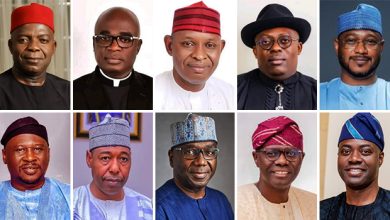Micro, small businesses grew by 12% in 4 years — SMEDAN, NBS survey
The number of micro, small and medium scale businesses in Nigeria grew by 12 percent to 41.543 million in 2017 from 37.067 million in 2013, the latest National Survey of Micro Small & Medium Enterprises (MSMEs) jointly conducted by National Bureau of Statistics (NBS) and Small and Medium Enterprises Development Agency of Nigeria (SMEDAN) has revealed. The report released last week stated: “The total number of MSMEs as at December 2017 stood at 41,543,028 – micro enterprises (MEs): 41, 469,947; small and medium enterprises (SMEs): 73,081. The sectors’ total employment contribution stood at 59,647,954 persons, including owners, as at December 2017, representing 86.3 percent of national workforce, contributing 7.64 percent of export receipts.”
N5m for grab by 100 subscribers in StarTimes kiddies back to school items(Opens in a new browser tab) By contrast, the total number of MSMEs as at 2013 stood at 37,067,416 – MEs 36,994,578; SMEs 72838. Also, the total number of persons employed by the MSMEs sector as at December 2013 stood at 59,741,211, representing 84.02 percent of the total labour force, while the sector’s contribution to export stood at 7.27%. At the unveiling of the survey in Lagos, Director General, SMEDAN, Dr. Umaru Dikko Radda, noted that the report is an invaluable compendium on the state of the MSMEs sub-sector in the country. According to him, SMEDAN was set up mainly to tackle the problems of MSMEs, especially providing capacity for the industry and seeking more funding for the sector in a coordinated fashion.
He stated: “With a mandate to promote the development of SME sub-sector of the Nigerian economy, SMEDAN assumed the twin roles of coordination and facilitation as the agency for MSMEs development.” SMEDAN lauds Obaseki’s focus on infrastructure, education(Opens in a new browser tab) Radda also called on government to establish MSMEs bank to make loan access by small businesses easier, adding the agency has instituted a five-year strategic plan to tackle the challenges facing the sector.
“We are talking more on our operation and we would want to concentrate more on the fewer activities we have. We are talking about capacity building, business development support, which is very much needed at this time to enable them to be competitive, without which they cannot grow even if you give them money,” he added. Also speaking at the event, Statistician General of the Federation,
Dr. Yemi Kale, said that the 2017 National MSMEs Survey, which is the third edition following that of 2010 and 2013, covered enterprises in Nigeria employing below 200 persons and was conducted in all the 36 States of the federation and FCT. He noted that MSMEs play a significant role as the engine for economic transformation and industrialization for both developed and developing countries. Kale listed challenges facing MSMEs to include vulnerability to economic shocks, lack of stable and supportive policy environment, excessive regulation, complex and cumbersome tax process, and inadequate skills for the youth, among others.



